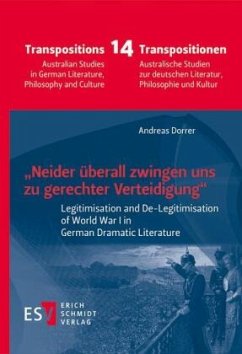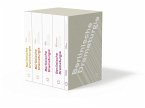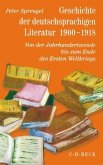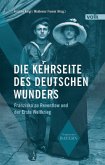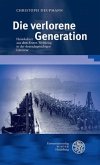This first monograph on WWI dramatic literature closes one of the last research desiderata of the German literature on the First World War. The author opens up a hitherto unknown corpus of texts and identifies the most important discourses represented in these WWI plays. Furthermore, he embeds the discourses in contemporary public debates and identifies them in more famous dramatic works of the Weimar Republic.This allows the analysis of the Heimkehrerdramen of Toller, Brecht, and Horváth to focus on the representation of contemporary narratives that have so far been overlooked and embeds these plays in the context in which they were created. Previously, this was only the case for Karl Kraus's Die letzten Tage der Menschheit, which is also interpreted by the author in a newly established intertextual relationship with early WWI dramas.The approach this book takes not only provides new insights into WWI dramatic literature from 1914 to the end of the Weimar Republic, but also new points of departure for research in a number of literary and cultural studies fields.
Bitte wählen Sie Ihr Anliegen aus.
Rechnungen
Retourenschein anfordern
Bestellstatus
Storno

